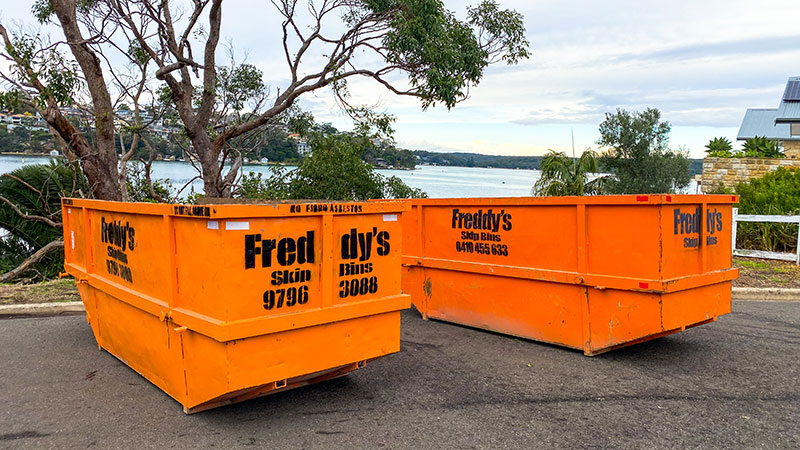Environmental Considerations of Skip Bin Hire

Skip bin hire is a convenient solution for waste disposal, but the environmental impact of the service should not be overlooked. This guide explores the environmental considerations associated with skip bin hire and provides practical strategies that skip companies can use for minimising their footprint while managing waste responsibly.
From promoting recycling and proper hazardous waste disposal to reducing carbon emissions and engaging with the community, discover how eco-conscious choices can be made throughout the skip bin hire process.
Prioritise Recycling & Reuse: Minimise Landfill Waste
Skip bins offer a convenient way to manage recyclable materials, diverting waste from landfills. Understand what can be recycled and explore options for partnering with recycling centres.
Common Recyclables:
- Paper and Cardboard: Flatten cardboard boxes and ensure paper is clean and dry.
- Plastics: Check local guidelines for accepted plastic types and rinse containers.
- Glass: Separate clear, green, and brown glass. Rinse containers and remove lids.
- Metals: Include aluminium cans, clean food tins, and scrap metal.
- Green Waste: Dispose of garden waste, leaves, and branches responsibly.
Partnering with Recycling Centres:
- Collaborate with local recycling centres to ensure proper waste processing.
- Offer skip bins specifically designated for recyclable materials or particular waste types like bulky waste.
- Provide clear instructions on accepted recyclables to avoid contamination.
- Promote the benefits of recycling and its positive impact on the environment.
Remember: Always check with your local council or recycling facility for specific guidelines and accepted materials.
Handling Hazardous Waste: Safety and Responsibility
Hazardous waste requires special attention due to its potential risks to human health and the environment. Identify hazardous waste types and ensure proper handling and disposal methods to maintain safety and compliance.
Common Hazardous Waste Types:
- Asbestos: Found in older construction materials, asbestos fibres pose serious health risks when inhaled.
- Chemicals: Paints, solvents, pesticides, and cleaning agents require careful disposal due to their toxicity.
- Batteries: Dispose of batteries at designated collection points to prevent soil and water contamination.
- Electronics: E-waste contains hazardous materials and should be recycled through specialised facilities.
- Fluorescent Lights: These lights contain mercury and require proper handling to avoid environmental harm.
Correct Disposal Methods:
- Never dispose of hazardous waste in regular skip bins.
- Contact your local council or waste management facility for guidance.
- Utilise licensed hazardous waste disposal services for safe handling and treatment.
Educating Customers:
- Inform customers about the risks associated with improper hazardous waste disposal.
- Provide clear guidelines on identifying and separating hazardous materials.
- Offer resources and information on responsible disposal options.
Responsible hazardous waste disposal protects our communities and the environment. Always prioritise safety and compliance.
Reducing Carbon Footprint: Sustainable Practices in Skip Bin Hire
Transportation plays a significant role in the environmental impact of skip bin hire. Implement sustainable practices to reduce your carbon footprint and contribute to a greener future.
Fuel-Efficient Vehicles:
- Invest in modern, fuel-efficient trucks for waste collection and delivery.
- Explore alternative fuel options such as biodiesel or electric vehicles.
- Implement regular vehicle maintenance to ensure optimal fuel efficiency.
Route Optimisation:
- Plan efficient routes to minimise travel distances and reduce fuel consumption.
- Utilise route planning software to optimise logistics and avoid unnecessary trips.
- Schedule pickups and deliveries strategically to maximise vehicle capacity.
Local Waste Processing:
- Partner with local waste processing facilities to reduce transportation distances.
- Support facilities that prioritise recycling and resource recovery.
- Promote awareness of local waste management options and their environmental benefits.
Additional Tips:
- Offer skip bin sizes appropriate for customer needs to avoid unnecessary trips.
- Encourage customers to consider eco-friendly alternatives when applicable, such as composting or junk removal services.
By implementing sustainable practices, skip bin hire companies can significantly reduce their carbon footprint and contribute to a more environmentally responsible waste management system.
Supporting Sustainable Waste Management: Beyond Traditional Disposal
Go beyond traditional waste disposal methods and embrace sustainable practices that contribute to a circular economy. Explore options like organic waste management, waste-to-energy initiatives, and efficient waste sorting.
Organic Waste Management:
- Offer dedicated skip bins for green waste, such as garden clippings, leaves, and branches.
- Partner with composting facilities to convert organic waste into nutrient-rich compost.
- Educate customers on the benefits of composting and its role in soil health and waste reduction.
Waste-to-Energy Collaboration:
- Explore partnerships with waste-to-energy plants that convert non-recyclable waste into energy.
- This process reduces landfill reliance and generates renewable energy sources.
- Support advancements in waste-to-energy technologies for improved efficiency and environmental performance.
Waste Sorting Services:
- Implement waste sorting systems to separate recyclable materials from general waste efficiently.
- Offer on-site sorting services or partner with sorting facilities.
- Educate customers on proper waste segregation practices to minimise contamination.
By embracing sustainable waste management practices, skip bin hire companies can contribute to a more circular economy, reduce landfill reliance, and promote environmental responsibility within the waste management industry.
Compliance with Environmental Legislation: Operating Responsibly
Maintaining compliance with environmental regulations is crucial for responsible skip bin hire operations. Stay informed about current legislation and implement practices that ensure environmental protection.
Staying Updated:
- Regularly monitor updates to local and national environmental regulations.
- Subscribe to industry publications and attend relevant workshops or seminars.
- Engage with environmental agencies for guidance and support.
Environmental Permits:
- Obtain and maintain all necessary environmental permits for waste transportation and disposal.
- Adhere to council permit conditions and reporting requirements.
- Ensure proper documentation and record-keeping practices.
Staff Training:
- Provide regular training for staff on environmental policies and procedures.
- Cover topics such as waste segregation, hazardous waste handling, and spill prevention.
- Empower employees to identify and report potential environmental risks.
Additional Considerations:
- Implement an environmental management system to monitor and improve environmental performance.
- Conduct regular audits to ensure ongoing compliance.
- Promote a culture of environmental responsibility throughout the organisation.
Compliance with environmental legislation is not just a legal obligation but a commitment to protecting our environment and operating responsibly.
Community Awareness and Education: Fostering Environmental Responsibility
Skip bin hire companies can play a vital role in raising community awareness and promoting responsible waste management practices. Take proactive steps to educate and engage with your community.
Educational Workshops:
- Organise workshops on waste management topics, such as recycling, composting, and reducing waste.
- Target diverse audiences, including households, businesses, and schools.
- Collaborate with local environmental organisations or waste management experts to deliver informative sessions.
Online Resources:
- Develop informative content on your website and social media platforms.
- Create blog posts, infographics, and videos that explain waste management practices and their environmental impact.
- Share tips on waste reduction, recycling, and responsible disposal options.
Community Engagement:
- Participate in community clean-up events or tree planting initiatives.
- Sponsor local sustainability projects or environmental education programs.
- Partner with schools to educate students about waste management and sustainability.
Additional Ideas:
- Offer educational materials and resources to customers.
- Run contests or campaigns that promote recycling and waste reduction.
- Recognise and reward customers who demonstrate responsible waste management practices.
By actively engaging with the community and promoting environmental awareness, skip bin hire companies can foster a culture of responsibility and contribute to a more sustainable future.
We are proud to support:











